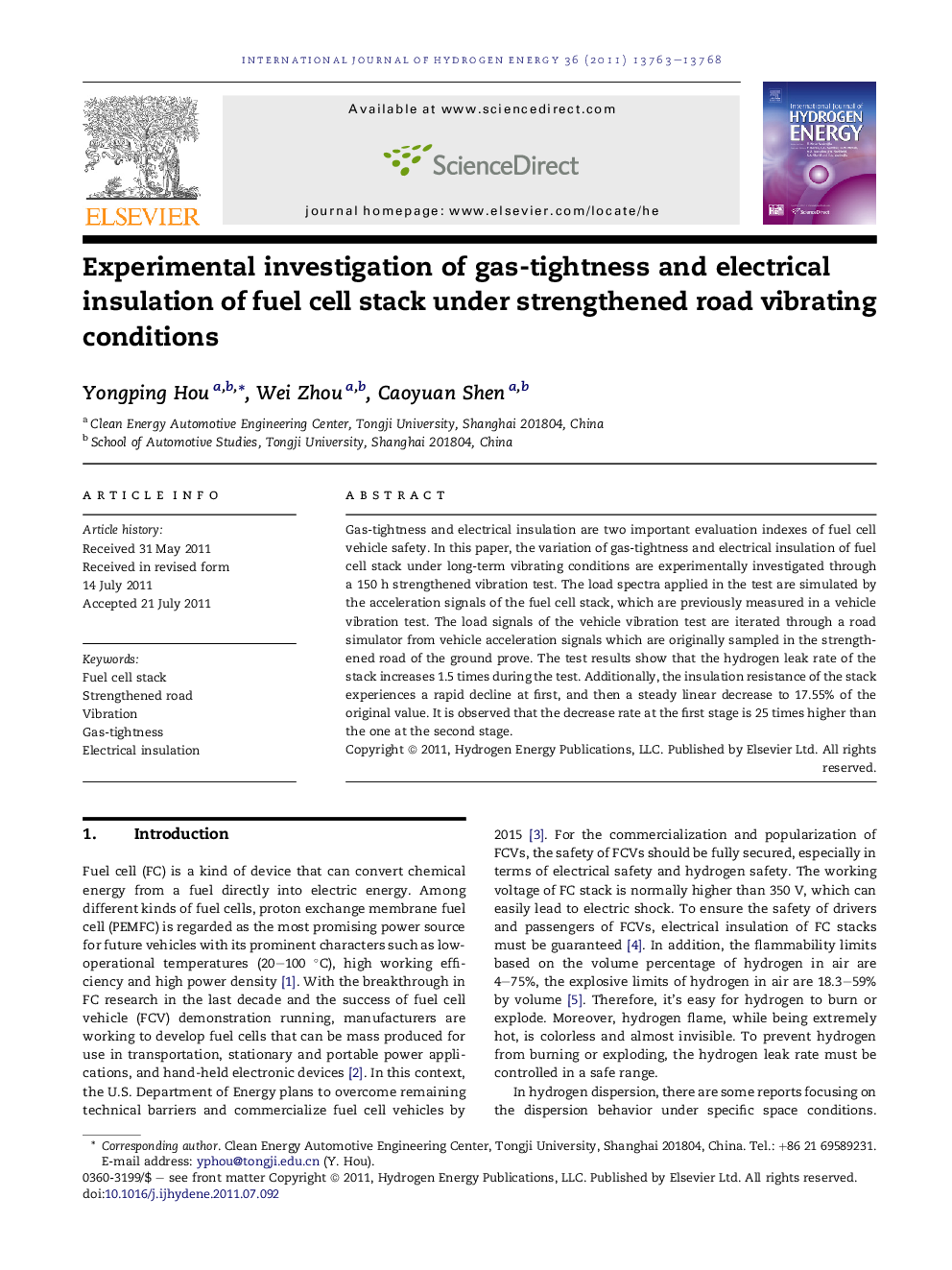| Article ID | Journal | Published Year | Pages | File Type |
|---|---|---|---|---|
| 1278723 | International Journal of Hydrogen Energy | 2011 | 6 Pages |
Gas-tightness and electrical insulation are two important evaluation indexes of fuel cell vehicle safety. In this paper, the variation of gas-tightness and electrical insulation of fuel cell stack under long-term vibrating conditions are experimentally investigated through a 150 h strengthened vibration test. The load spectra applied in the test are simulated by the acceleration signals of the fuel cell stack, which are previously measured in a vehicle vibration test. The load signals of the vehicle vibration test are iterated through a road simulator from vehicle acceleration signals which are originally sampled in the strengthened road of the ground prove. The test results show that the hydrogen leak rate of the stack increases 1.5 times during the test. Additionally, the insulation resistance of the stack experiences a rapid decline at first, and then a steady linear decrease to 17.55% of the original value. It is observed that the decrease rate at the first stage is 25 times higher than the one at the second stage.
► The gas-tightness of the stack declines constantly after 70 h of vibration. ► The long-term vibration leads to the damage of internal sealing structure. ► The insulation resistance decreases to 17.55% of the original after the test. ► The decrease of insulation resistance is divided into two stages.
